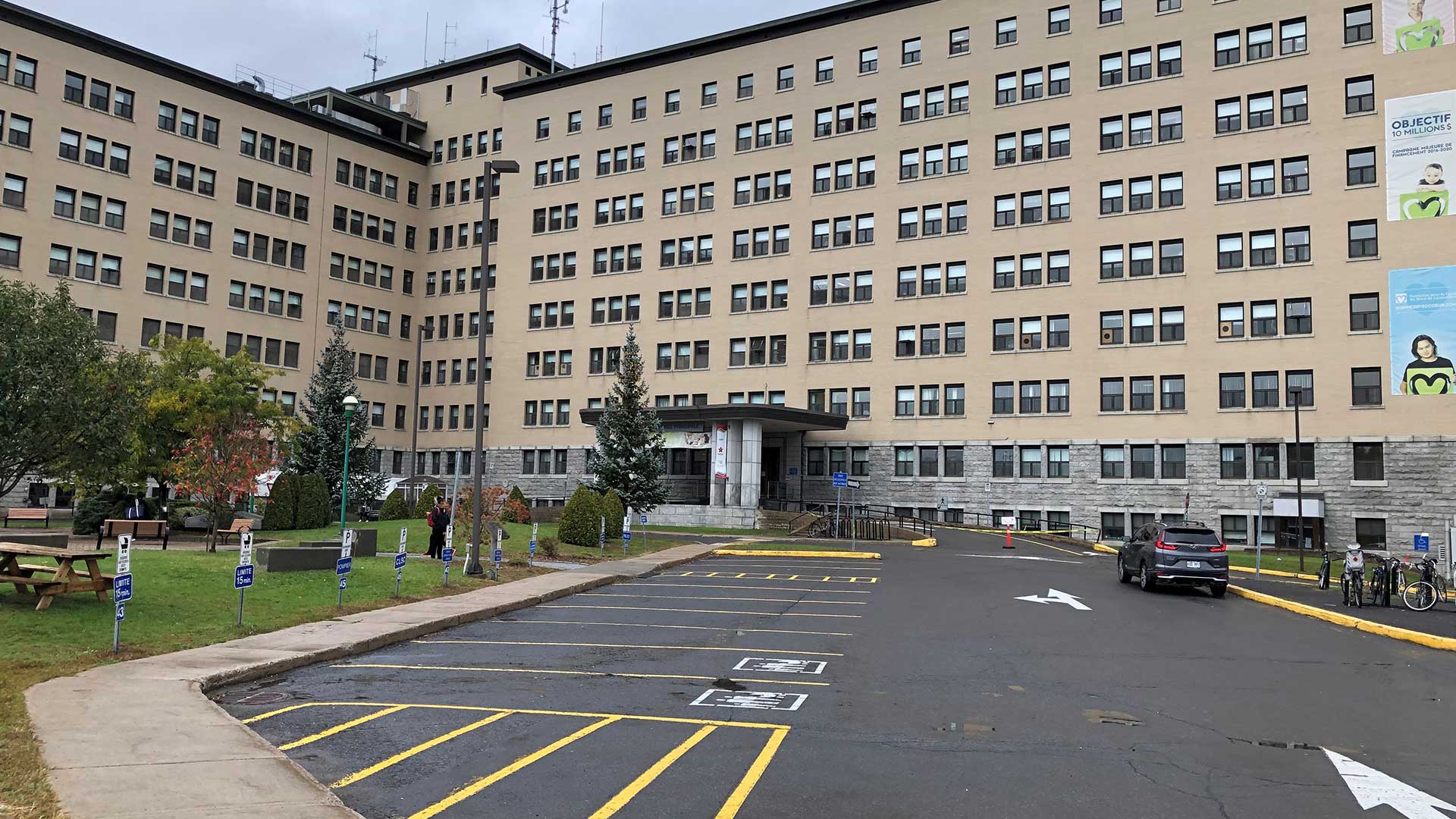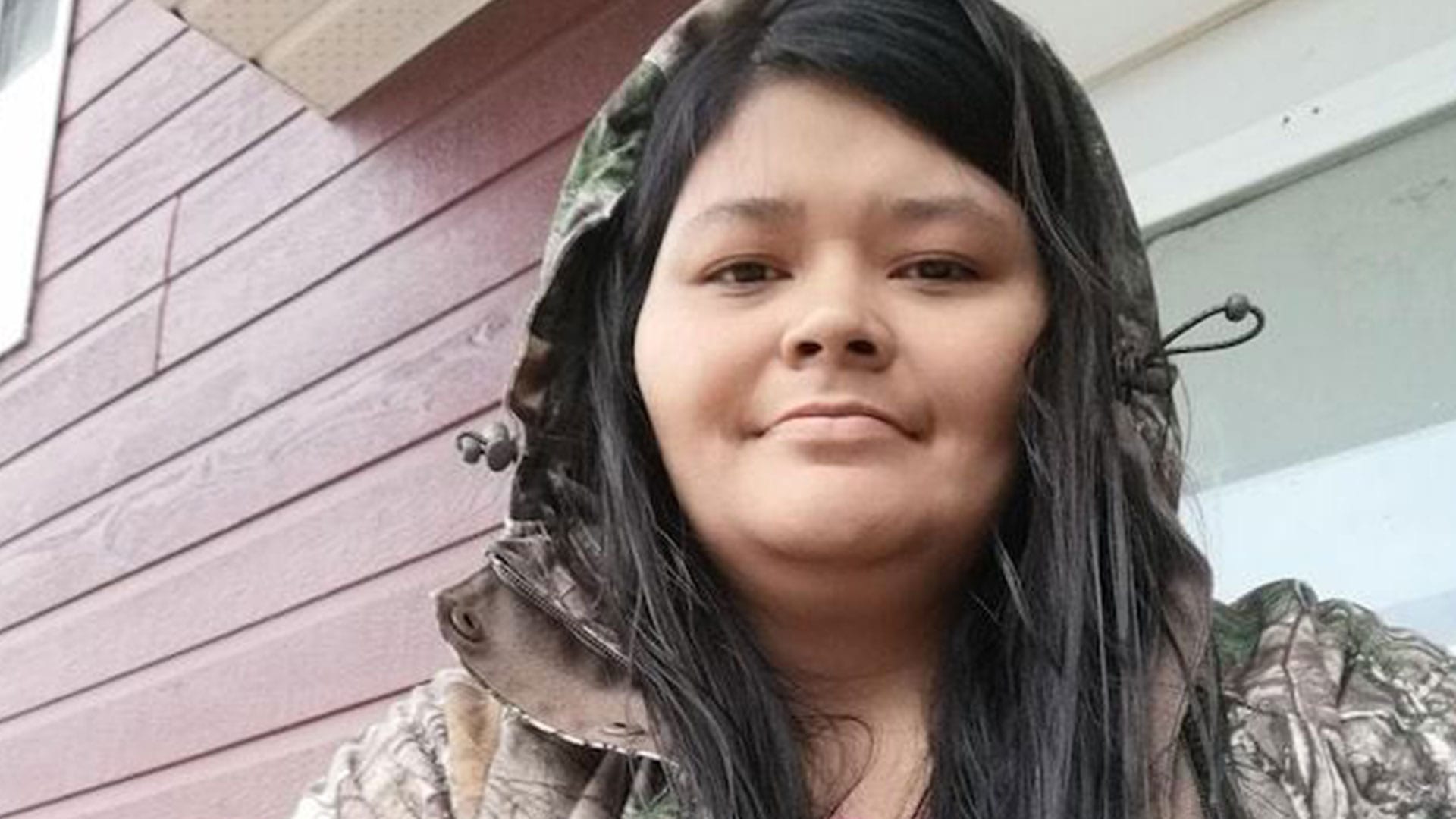
Justice for Joyce signs were all over Parliament Hill last week as people seek answers to her Echaquan's death. Photo: Jason Leroux/APTN.
Representatives of the Atikamekw nation say they’re “optimistic,” yet “cautious” about the potential for concrete change following a closed-door meeting with Quebec Premier Francois Legault, held in Montreal on Monday.
Over the weekend, the province’s chief coroner announced a public inquest into the death of Joyce Echaquan, the Atikamekw woman who filmed herself being insulted by hospital staff hours before she died.
Pascale Descary said the late-Saturday decision came as the result of a formal request filed hours earlier from Quebec’s Public Security Minister Genevieve Guilbault.
Descary’s office pledged to launch the inquiry soon, but offered no specific dates.
“It’s a good thing, but again there are so many reports about First Nations that governments should know what to do by now,” Constant Awashish, Chief of the Atikamekw National Council, told APTN News.
The Atikamekw Nation, according to Awashish and Manawan Chief Paul-Emile Ottawa, is petitioning for involvement in the coroner’s inquiry as it plays out.
“We need someone who can be an observer in the process. [Legault] was going to look into it, and now we’re going to wait for an answer,” Awashish said.
According to Awashish, the parties agreed to continue meeting on a regular basis.
They did not, however, reach an agreement on whether the term systemic discrimination is accurate enough to describe what is transpiring in Quebec’s health care system – and across its public services overall.
Legault previously acknowledged the issue of racism against First Nations, but said the acts captured in Echaquan’s chilling livestream video were not “typical.”

Echaquan, a 37-year-old mother of seven, died shortly after she filmed herself from her hospital bed in Joliette, about 70 km north of Montreal, last Monday while she was in clear distress and pleading for help.
Hospital staff can be heard in the video making disparaging comments about Echaquan, including calling her stupid and saying she’d be better off dead. Two people have since been fired.
The video created widespread indignation, touched off several investigations and prompted Echaquan’s family to launch a lawsuit against the hospital where she died.
“That’s what we didn’t agree on: ‘systemic,’” Awashish explained. “It’s not saying everyone is racist by saying there’s systemic racism against First Nations. It’s not admitting that people are racist – but it’s how everything was built on the inferiority of First Nations.”
Last Friday – shortly before a set appointment – Assembly of First Nations Quebec-Labrador Regional Chief Ghislain Picard cancelled his meeting with the Premier, telling APTN News this request to include Atikamekw leadership in the meeting was turned down.
Legault refuted that claim during Friday’s COVID-19 briefing, claiming he never received a request from the AFNQL, but was keen on meeting with Atikamekw Chiefs as soon as possible.
At the time, Legault said the AFNQL had repeatedly cancelled meetings with the government, effectively stalling progress on the findings of the Viens Commission.
Legault – and his Indigenous Affairs Minister, Sylvie D’Amours – insist that progress is being made on 51 of the report’s 142 recommendations.
“It’s not by cancelling meetings that we’re going to get there,” Legault said Friday.
Echaquan’s relatives and members of the Atikamekw community of Manawan, about 200 km north of Joliette, welcomed the pending coroner’s inquest.
“Every day in Quebec and Canada, Indigenous men, women and children are victims of contempt and racism in the health care system,” family and community members said in a statement released hours after the coroner’s announcement.
“Joyce Echaquan’s case at Joliette Hospital is certainly not unique, but rather the tip of the iceberg.”
“The public inquest must provide answers that will initiate change in how health care services are delivered to Indigenous people.”
Read more:
Manawan is relatively remote, between 50 km and 350 km from the nearest service centre with year round road access.
Similar calls for reform rang through the streets of Montreal on Saturday as crowds of protesters held a rally to both express support for Echaquan’s family and voice concerns about systemic racism in the health-care system.
The coroner’s office said the public inquest will seek to examine the cause and circumstances surrounding her death, and make recommendations to prevent similar incidents in the future.
The calls for change continued on Sunday during an annual vigil for missing and murdered Indigenous women and girls (MMIWG).
Advocacy organizations said Echaquan’s death was yet another example of the sort of systemic racism that leaves the disappearances of Indigenous women and girls unsolved.
“Violence against them is still present, and last week we had yet another horrific example of this,” the Assembly of First Nations Quebec-Labrador said in a news release that renewed a call for government action to implement a national inquiry’s recommendations on the issue.
Montreal Mayor Valerie Plante, in tweets marking Sunday’s day of remembrance, commended crowds of protesters who marched through her city’s downtown on Saturday to demand justice for Echaquan.
Plante called for people to be allies of First Nations to end systemic racism and discrimination, and to commit to reconciliation.
Those participating in Sunday’s virtual Sisters in Spirit vigil lit candles to honour Indigenous women who have been murdered or gone missing.
Perry Bellegarde, national chief of the Assembly of First Nations, shared a photo of a candle, noting the significance of remembering lost women.
“I stand with the survivors, families, and all of our allies trying to push for better lives for First Nations Women,” Bellegarde wrote on Twitter.

Prime Minister Justin Trudeau also shared a message for families and victims.
“For far too long, we have failed Indigenous women and girls,” Trudeau’s Twitter statement read. “This ongoing national tragedy must end, and we won’t stop working with you until it does.”
The MMIWG national inquiry delivered its final report in June 2019. It described the tragedy as genocide, and concluded that decades of systemic racism and human rights violations played a role in the deaths and disappearances of hundreds of Indigenous women and girls.
This past June, the Liberal government delayed the intended release of its national action plan on the inquiry’s recommendations, saying the pandemic was slowing the process down.
Lorraine Whitman, president of the Native Women’s Association of Canada said while it’s disappointing that the government did not deliver the plan within one year of the national inquiry’s final report, it’s time to focus on what needs to be done to make Indigenous women safer.
Whitman shared some of the recommended measures her association submitted to Ottawa as it develops the plan. They include a new investigative unit for cold cases and a database monitoring the cases of missing and murdered Indigenous women in Canada.
“The tabling of the first version of the national action plan will not stop the violence overnight but I am confident it will start us down the road to creating a country that is a safer place for Indigenous women,” Whitman said.
The Ontario Native Women’s Association also published a report Sunday detailing its recommendations for ending the violence.
Those recommendations include investment in local programs supporting mothers involved with the child welfare system, better data collection about human trafficking and development of culturally sensitive victims’ services.
Meanwhile, a funeral service for Joyce Echaquan will be held in Manawan on Tuesday.
Awashish – and the entirety of the Atikamekw Nation – now waits for Quebec to play its hand.
“I felt he was listening, and now we’re going to look forward to what he agreed to. [Legault] wanted action, said we needed action, that he’s going to do things he can see with his own eyes – change, results,” Awashish said.
“Now we’re going to look forward to see those results in the next year, next two years, to see if he was really sincere by listening to us.”
With files from the Canadian Press










